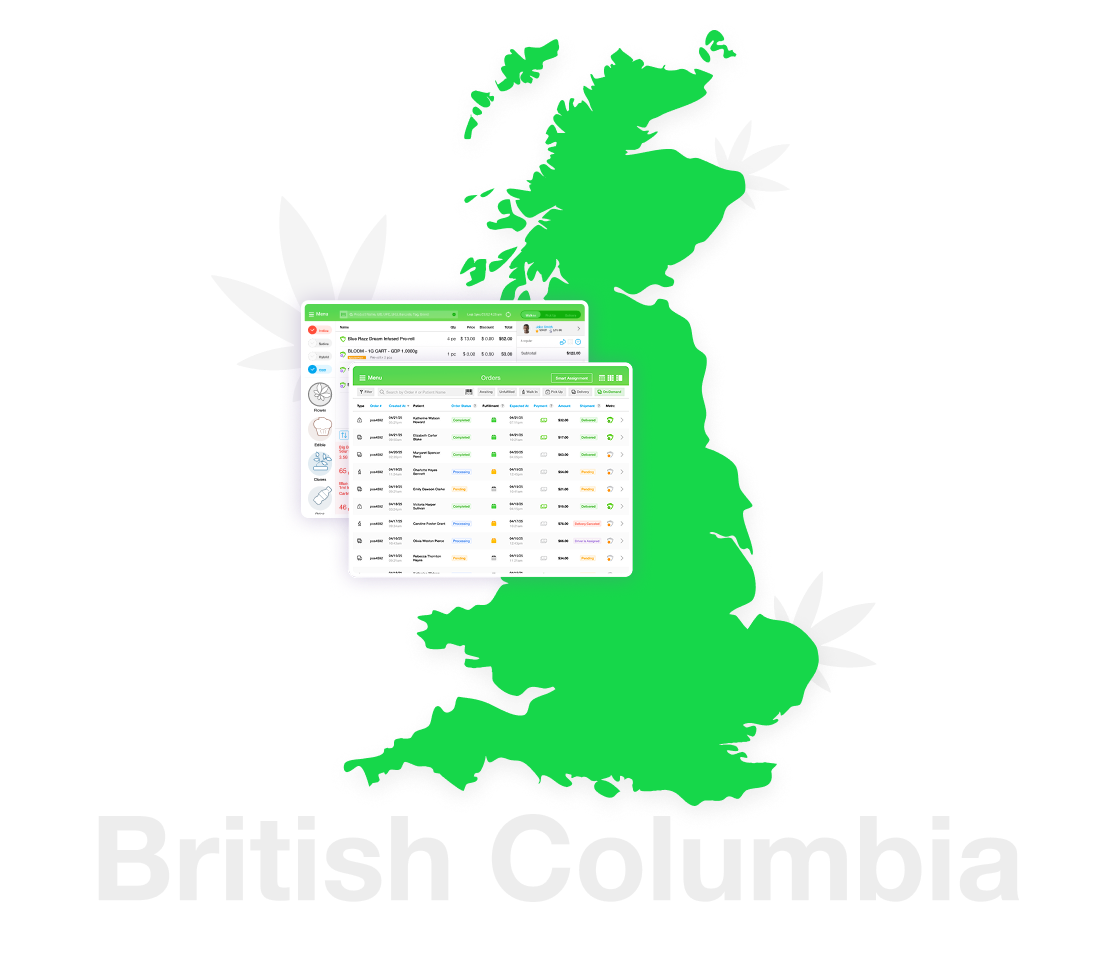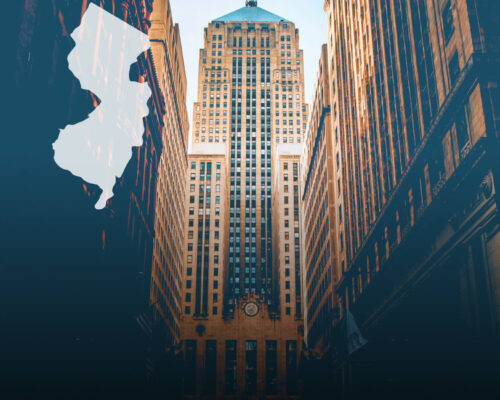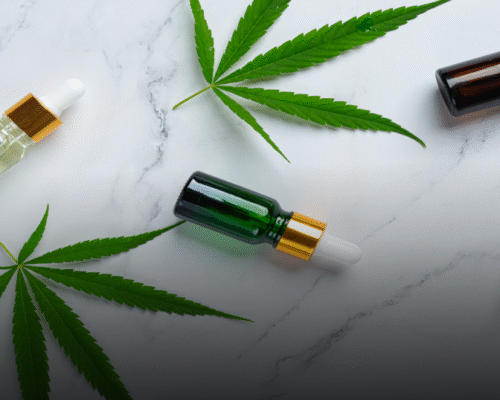British Columbia’s (BC) cannabis market continues to grow, but so do the demands on dispensaries. You’re managing more products, tighter regulations, and rising customer expectations, all while staying compliant with some of the strictest laws in Canada. Generic point-of-sale (POS) systems can’t keep up with the complexity of cannabis retail in BC. That’s where IndicaOnline makes the difference.
Built specifically for licensed dispensaries in British Columbia, our cannabis POS software helps you manage inventory in real-time, track every transaction for compliance, and keep operations running smoothly. If you’re opening your first location or expanding across the province, the system scales with you and adapts to local laws and workflows.
Discover how IndicaOnline simplifies operations with automated sales tracking, robust compliance features, and tailored tools for British Columbia’s cannabis ecosystem.
Essential POS Features Designed for BC Cannabis Retailers
British Columbia dispensaries need tools that work with them, not against them. That means simple workflows, flexible inventory tools, and security you can trust. IndicaOnline’s cannabis POS is built with these needs in mind. Here’s how it helps you stay ahead:
- Inventory Management. Check inventory, edit product details, and perform audits directly from a tablet. No need to head to a back office terminal or wait until the end of the day. This gives staff more flexibility and helps you stay on top of stock, even during peak hours.
- Minimal Training Required. The system’s clean layout and guided workflows make it easy for staff to learn and use. Most team members can get the hang of it quickly, even if it’s their first dispensary role. That means less time spent on onboarding and more time focused on customers.
- Advanced Data Security. Your data stays safe with end-to-end encryption and role-based access controls, helping you meet British Columbia’s privacy regulations. This protects your business from compliance violations and prevents unauthorized access to sensitive information.
- Cloud-Based Architecture. With all your data stored securely in the cloud, updates happen in real-time across every location and device. There’s no need to sync manually or worry about version conflicts. It keeps your team aligned and ensures accurate information is always within reach.
- Built-In E-commerce Integration with Sweede. Seamlessly connect your in-store POS to your online storefront using Sweede, IndicaOnline’s native e-commerce platform. Orders, payments, and inventory stay in sync automatically, so customers always see accurate menus and you never oversell or lose track of stock.
Stay Ahead of Cannabis Compliance in British Columbia
In British Columbia, staying compliant is essential. With evolving provincial rules and strict reporting standards, your POS needs to ring up sales and help you avoid penalties. IndicaOnline takes the pressure off compliance with tools built for BC cannabis retailers. This includes the following:
- BC-Specific Compliance Reports. IndicaOnline generates detailed reports that match British Columbia’s cannabis retail reporting requirements. These are formatted automatically to meet provincial standards without needing you for spreadsheets or manual adjustments.
- Automatic Sales Tax & Batch Reporting. Sales taxes are applied at checkout based on provincial rates, and every product batch is tracked from intake to sale. The system ensures that batch numbers and tax details stay accurate without extra data entry.
- Real-Time Auditing & Alerts. The system continuously monitors your inventory and sales activity for issues like missing data, overages, or threshold breaches. Warnings and alerts flag problems before they impact compliance. As a result, you reduce the risk of penalties and stay ahead of potential compliance gaps.
- Seamless Regulatory Integration. IndicaOnline connects directly with BC’s cannabis regulatory systems to sync inventory, sales, and product details in real-time. Updates happen automatically, with no need for manual uploads.
Learn how our POS eliminates compliance guesswork with built-in reporting, syncing, and audit trails.
Innovative Delivery Features Built for BC’s Cannabis Regulations
Cannabis delivery in British Columbia comes with rising customer expectations. You need a system that makes it easy to stay compliant while keeping delivery times short and operations smooth. IndicaOnline gives you complete control of the delivery process, from dispatch to doorstep. Here’s how the delivery suite supports BC’s cannabis delivery standards:
- GPS-Tracked Delivery. You can track every order in real time, know where your drivers are, and keep customers updated with accurate ETAs. With these, it improves transparency, increases trust, and helps you respond quickly to delays or route issues.
- Driver App for On-the-Road Compliance. Drivers can scan IDs, confirm orders, and capture signatures, all through the app. No paperwork or compliance gaps. This removes the need for paper logs and helps you meet BC’s delivery documentation requirements without extra steps.
- Run Optimization. Group multiple deliveries into one efficient route. Save fuel, reduce wait times, and make more deliveries per shift. This reduces fuel costs, shortens delivery windows, and allows drivers to complete more orders per shift.
- Seamless POS Integration. Orders, inventory, and records all stay synced. There are no manual updates. No mix-ups, eliminating the mistakes caused by system mismatches, and ensuring accurate reporting for both sales and compliance.
Optimize your delivery workflow and reduce customer wait times with real-time route management.
Make Smarter Business Decisions with Real-Time Data
Running a successful dispensary in British Columbia means making quick, informed decisions. But without the correct data, it’s easy to miss trends or miss out on profits. IndicaOnline gives you access to powerful real-time analytics through Looker BI so you can take action before problems grow. Here’s how IndicaOnline turns your data into day-to-day business decisions:
- Custom Reports Built for Cannabis Retail. These aren’t generic templates. You get data reports tailored to the cannabis workflow. It covers revenue, product movement, employee performance, and customer trends. That means you can quickly spot what’s helping or hurting your business and respond with clarity, not guesswork.
- Product & Sales Trend Monitoring. See exactly which items are selling, which ones are sitting, and when your peak hours hit. Data updates in real-time, so you’re never relying on yesterday’s numbers. This helps you optimize store layout, pricing, and staff scheduling based on what’s happening now.
- Predictive Inventory Planning. By analyzing sales history alongside current stock, the system forecasts what you’ll need days or weeks ahead. Alerts highlight low stock before it becomes a problem. The result: you avoid stockouts and reduce the risk of over-ordering slow-moving products.
- KPI Dashboards for Owners & Managers. Everything that matters is in one dashboard: average order value, sales per employee, customer wait times, and more. You don’t need to dig through spreadsheets or switch between tools. This gives you a high-level view of your store’s health so you can lead proactively, not reactively.
Use real-time data to improve staffing, plan promotions, and adjust inventory before it impacts sales.
Frequently Asked Questions
What is the best cannabis POS system for dispensaries in British Columbia?
The best POS system for BC dispensaries is one that’s built specifically for cannabis retail and local compliance. IndicaOnline offers province-specific tools, real-time reporting, delivery features, and integration with BC’s regulatory systems, all in one platform.
Does IndicaOnline help with BC cannabis compliance?
Yes. IndicaOnline is designed to meet BC’s cannabis regulations, including automated batch tracking, sales tax calculation, and audit-ready reporting. It also syncs directly with the province’s regulatory systems, so your records stay accurate and up to date.
Can I manage delivery operations with IndicaOnline?
Absolutely. The built-in delivery suite includes GPS tracking, a mobile driver app, and automated route optimization. Every step—from dispatch to drop-off—is tracked and logged in compliance with BC’s cannabis delivery rules.
Is IndicaOnline suitable for multi-location dispensaries?
Yes. As a cloud-based system, IndicaOnline allows you to manage multiple locations in real-time. Inventory, sales, staffing, and compliance data stay synced across all stores, giving you centralized control no matter how many places you operate.
Does the POS system include reporting and analytics?
It does. IndicaOnline includes built-in analytics powered by Looker BI, giving you detailed insights into revenue, inventory, customer behavior, and staff performance. This helps you make faster, data-driven decisions without relying on third-party tools.





















